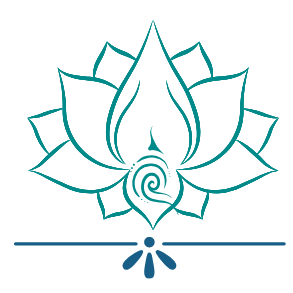
Many people report experiencing “festive burnout” by mid-December...
It’s easy to fall into hustle mode, feeling like there’s too much to do, too many commitments to keep, and that we’re falling short all at the same time. This can be exacerbated when we compare our reality to what we see on social media. Festive burnout can appear as irritability, short temperedness, unhealthy coping such as excessive drinking, over-eating, or isolating, paired with the desire to just get through the holidays. When we reach this stage, we're missing out on the benefits the season can bring. It can be a time for relaxing, reconnecting, and rejoicing. Unfortunately, burn out seems to be more common with intensified pressures. Many find it hard to keep up, taking stress to the next level of burn-out.
Check out this clip of my interview with Angie Seth for CTV news, on the topic.
Realizing the gift of presence, not just related to others but being present within ourselves can create a positive shift. I’m referring to incorporating mindfulness skills into a mindset for the season. Taking time to think about how you want to experience the holidays, is an important first step. This can help ensure you don’t get swept away in schedules, expectations, or comparisons. Setting your own intentions can be a way of checking in with yourself, asking, is this what you want or not? Then, if you notice you’ve gotten swept away, taking a mindful attitude (awareness with acceptance & non-judgment), and gently coming back to your intention. There may be ways of still having the experiences you want or elements of it, even if the situation has changed. It’s key to remain flexible with your intentions or else you can fall right back into burnout.
Other tips to avoid festive burnout include:
Be aware of situations that are normally stressful - like not finding a parking spot at the mall or having to face a difficult family member/friend at a gathering. Consider how you can accept, prepare for, and shift your perspective regarding these situations, ahead of time. While we can’t make stressors like these go away, shifting our perspective can shift our experience. For example with parking, accepting it likely will be busy/frustrating, preparing to put on your favourite music, choosing to carpool, or online shop may help. For that difficult family member, it may be reminding yourself you can say no to the event, respond assertively or have a safe word/signal with someone who can help interrupt stressful conversation. Additionally, it may help to focus on who you are looking forward to seeing.
Be mindful of negative self-talk, including self-criticism, so you don’t fall into the trap of feeling that you need to hustle, live up to high social or self expectations. Noticing negative self-talk can be a starting point for interrupting automatic thoughts that can taint our experience. If I think I’m failing as a mom, I’m likely going to miss my kids joy and my small wins, in turn I'll likely notice things that reinforce this self-critical thought. This may lead to my own mood changes, feelings of exhaustion, which may increase my irritability. It can be a never-ending cycle unless we start noticing and choosing differently, based on our value guided intentions.
Consider what’s in your capacity in a given moment and set boundaries. Capacity fluctuates from moment to moment, with energy, mood, and other demands. On a day you ate well, slept well and things are going well, your capacity will be different than on a day those things didn’t happen. Being mindful of our capacity, unhooking from self-judgement, frees us to consider what’s in our capacity and what isn’t, based on the current situation. We can then, either remember to accept this for ourselves and/or assertively communicate this to others, not falling into over-commitment. It makes for healthier relationships and a guard against burnout. Boundary setting may feel awkward but is significant when we remember why we’re setting them in the first place. Think about how you feel going to event you knew, you really didn’t have time/energy to.
Lastly remember, even though holiday stress can be a part of the season, there is room for many moments of joy. Mindfulness can create a choice point, wherein we can reflect if we're moving to or away from, what we want and what's important to us. Further, it reminds us the value of acceptance over continued struggle. When we use mindfulness this way, we can remember to choose our joy.
For support you can book an appointment or check out the resource page with crisis line and low/no fee services.
